Unification of Europe’s Far Right: Rise of the Fourth Reich?
It took only five years for the National Socialist German Workers’ Party (NSDAP), or Nazi Party to rise from having only a few hundred members, to being able to force the president of Germany to proclaim Adolf Hitler — a man whom he thoroughly despised — Chancellor. Hitler’s meteoric ascent to power should serve as a cautionary tale for modern-day Europe.
In late May 2014, over 500 million European citizens in 28 member sates will vote for their representatives to the European Parliament, despite their ignorance of the political climate that is likely to shape the elections and define the composition of this body of governance. In almost every single nation in Europe, far-right parties are gaining ground, and most adhere to the 14 precepts of fascism established by political historian Dr. Lawrence Britt. The situation is not entirely comparable to that of Europe and Germany of the 1930s and 40s. Nevertheless, the rise of these far-right parties, their ties to the economic hardships and austerity measures imposed by the European Union, and the spread of nationalistic and xenophobic tendencies are alarming.
Ethnocentricism and racism rebound on hard economic times
The far-right parties rely on rhetoric that calls for ethnic exclusion, cultural purity, discrimination for one’s “own people” and against immigrants and asylum seekers, demonization of Muslims and other minorities, and maintenance of so-called traditional values. The threat to national integrity in the face of increased globalization is the excuse used to enact policies and engage in discourse that rely on a fanatical nationalism. The boogieman of the era are largely Muslims and immigrants who are accused of overrunning the clean, pristine, white western supposed democracies with their incredibly high birth rates and “inferior cultural values,” which make them more prone to crime and theft of the natives’ jobs. No mention is made of the continued ghettoization and social exclusion of minorities by the mainstream society and capitalist economy. An irrational fear of the imposition of Sharia law by Muslims on everyone else is often evoked to depict the boogieman.
The success of far-right parties and their leaders is strongly linked to economic policies that have plunged much of Europe into a situation of perpetual debt and the socioeconomic repercussions from this. The cause for these parties’ rise is quite evident: in times of economic recession, people try to find a convenient scapegoat for their problems and those of their country. This is especially convenient if the subjects of this prejudice are marginalized, demonized and lacking in recourse to counter the irrational finger pointing and social blame. Scapegoating is yet more convenient if the target groups are second-class citizens, like migrants and refugees, who do not enjoy the same legal rights to protection, whose lives and lifestyles are at risk, and who can be intimidated into silence with the threat of deportation. Thus politicians exploit the fear of an uncertain future due to economic hardship, project it onto a marginalized group or ethnic minority, and use it to ascend to power and impose their ideologies.
To blame only economic conditions for this state of affairs, however, would be too simple and superficial. In many countries, the rise of far-right parties can be tied to a direct failure of governance, as well as historical trends of subjugation and colonization by imperial powers in the rest of the world. In fact, Europe and the rest of the imperialist world have never really addressed the ethnocentric perceptions that lead them, more of less consciously, to believe themselves superior.
In the Netherlands, the rise of the far-right party is strictly tied to a reinforcement of the notion of a superiority of Dutch white culture, which has been an enduring part of Dutch self-perception. In Greece, the proliferation of racially and politically motivated hate crimes by fascist elements has been largely tied to the complicity of police or their unwillingness to pursue serious investigations of these crimes.
Fascism’s common cross-border strategy
Greece’s Golden Dawn party is emblematic of the sharp resurgence of European fascism, but it is by no means an isolated example. Most European nations, including Switzerland (not in EU), Austria, Finland, Hungary, Norway, France, Denmark, the Netherlands, Belgium, Italy, Greece, and Germany are witnessing a rise in fear-mongering populists from the far-right of the political spectrum, who call for a revamping of national and traditional values and endorse outright racist and xenophobic views. Far from calling themselves fascist or far-right, they categorize themselves as “national conservatives,” “liberal democrats” or simply “conservatives,” or do not register themselves under a political ideology (non-inscrits) to avoid the historical and popular opposition to the term “far-right.” This is the case for parties such as the French Front National, the Dutch PVV (Partij voor de Vrijheid, Party for Freedom), the Italian Fiamma Tricolore, the Belgian Vlaams Belang, and the Freedom Party of Austria.
Fascism comes in many different forms but adheres to some basic elements, especially because the political system is most often utilized to manipulate the disgruntled masses. It relies on the perpetuation of popular fears that depend on the local and national contexts. It might even be constituted of workers and laborers, just as in Germany in the 1930s.
Although the European far-right parties may target different groups, all seem to follow a similar model in different contexts. Consequently, they find much common ground to cooperate for the upcoming European Elections. Symbolizing these pragmatic alliances is the collaboration between the Dutch PVV and the French Front National. The PVV is led by the charismatic Geert Wilders (voted Politician of the Year by South Hollanders), and it is currently gobbling on the largest slice of the Dutch popular vote. The Front National is led by Marine Le Pen, the daughter of its controversial founder, Jean-Marie le Pen.
A pan-European alliance joined by hatred and ironically against the EU
Marine Le Pen and Geert Wilders met on November 13, 2013 in The Hague to discuss how to cooperate in the creation of a pan-European alliance. On one hand, Wilders often criticizes Muslims for their homophobic attitudes and — at least for now — he prides himself on tolerance of sexual freedom as being one of the fundamental liberal values of the Netherlands that he and his party represent. On the other hand, Marine Le Pen has vigorously fought against the recently voted gay-marriage laws in France. While Wilders speaks of the “Christian-Judeo culture” of the Netherlands, Marine Le Pen is suspected of antisemitic attitudes, and her father is an expressed antisemite.
Despite these fundamental differences, Geert Wilders and Marine Le Pen have no qualms about cooperating in a power grab at a European level, which would allow them to further their ambitions for power on their respective national stages. Both are aware of each other’s use of fear tactics to manipulate their support base, with the scapegoated minorities being north Africans and Africans, some of whom are Muslims. Both also claim to be the paladin defenders of their Christian and national white values and to abhor those of migrants, although they seem unable to reach a consensus on values such as acceptance of sexual freedom in the Netherlands versus the adoption of Catholic gender roles in France. Le Pen’s ideology recalls the “Travail, Famille, Patrie” motto of the Nazi collaborators of Vichy France.
Other far-right parties across Europe are also collaborating with each other. Ideological minutia are not the subjects of discussion and discord in such deliberations. Rather, the establishment of a fascist system of political manipulation is the common goal, and fear-mongering is the common strategy. Despite being rhetorically largely anti-European and even calling from an exit of their respective nations from the Euro-zone, these parties had no compunction in banding together in late 2010 to launch a European referendum to “protect the union” by preventing Turkey‘s entry in the EU. Later, in December 2010, Heinz-Christian Strache (chairman of the Freedom Party of Austria), Belgian politician Filip Dewinter (Vlaams Belang), Kent Ekeroth (of the nationalist and anti-Islamic Sweden Democrats), and René Stadtkewitz (German Freedom Party) went to Israel to meet with Jewish settlers in the West Bank, and discuss “strategies against Islamic terror,” before being hosted as honored guests at the Israeli Parliament. United in their hatred for Islam, these parties have found much ground for cooperation at a European level.
This is not the first time that far-right parties in Europe have attempted to cooperate. In 2007, for example, various parties, led by France’s Front National, banded together to create a pan-European far-right alliance called “Identity, Tradition and Sovereignty.” Jean-Marie Le Pen also tried, between 1989 and 1994, to create the “Technical Group of the European Right.” Such attempts were often short lived and relatively unsuccessful, since they were consistently marred by internal disagreements. This seems to be changing.
Birth of the fourth reich?
Far-right parties are continuing to encroach on and infiltrate the European political landscape. When one looks at the European Parliamentary elections over the past years, one immediately notices a consistent erosion of the socialist and leftist groups (and the ones remaining are, in any case, milder versions of their predecessors), which might also account for the rise of parties and political entities on the opposite side of the political spectrum. This rise of the far right is not immediately apparent, but it can be seen if one compares the number of seats held by such parties in the European Parliament, and the number gained since 2009 in their national governments’ parliaments.
In Italy, the Lega Nord (Northern League) already controls most of the northern regions as well as nine out of Italy’s 73 MEPs. The Dutch PVV is Europe’s far-right rising star, going from holding 5.9 percent of the electorate in 2006 to 15.4 percent four years later, and to now being placed by many polls as the most favored party in the country. France’s Front National is also enjoying enormous success, as 42 percent of French citizens would consider voting for it at the upcoming municipal elections, and polls currently place it in the lead for the European Elections. Golden Dawn has the majority of voters galvanized in Greece and is poised to achieve similar results in the upcoming European parliamentary elections. The Danish People’s Party is the third largest in Denmark and steadily rising in polls. Similar trends are apparent in Northern-European countries such as Finland and Norway, as well as Eastern-European countries such as Hungary, Bulgaria and Poland.
The European elections in May 2014 bring to mind a few questions. Will the far-right get set on its way to further its agenda and increase its prominence? Arguably, the 1929 Wall Street crash that triggered the Great Depression brought along Adolf Hitler as one of its nastier side effects. Will the current austerity measures and economic turmoil across Europe be allowed to bring a modern-day, international version of the Nazis?
Editor’s Note: Photographs one, five, seven, eleven, thirteen and fourteen from James Vaughan archive. Map fourteen by Statista. Photographs eight and fifteen by StrassenStriche.net. Photograph six by Marie II, photograph ten by Jacco de Boer and photograph twelve by Gueorgui Tcherednitchenko.
Related Articles


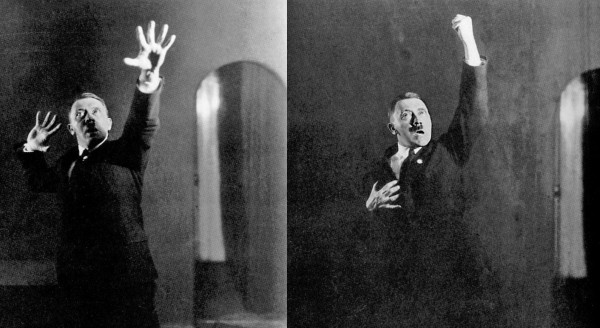
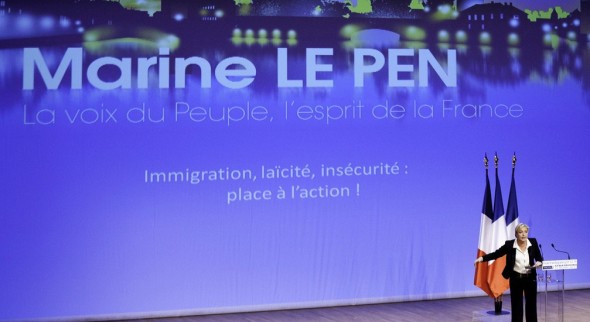
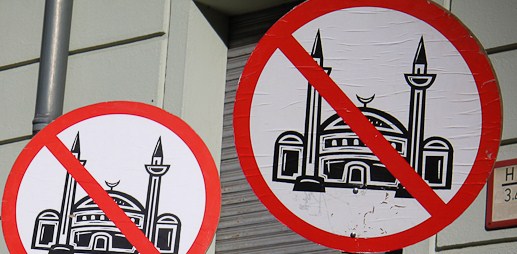
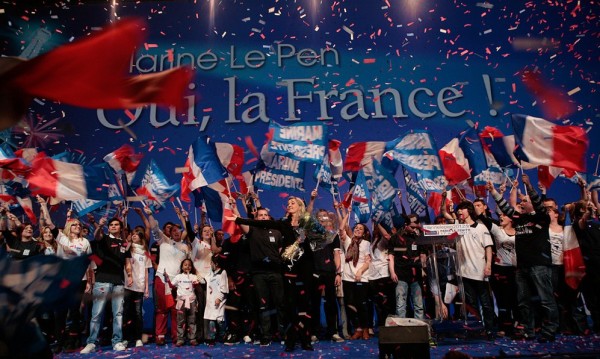
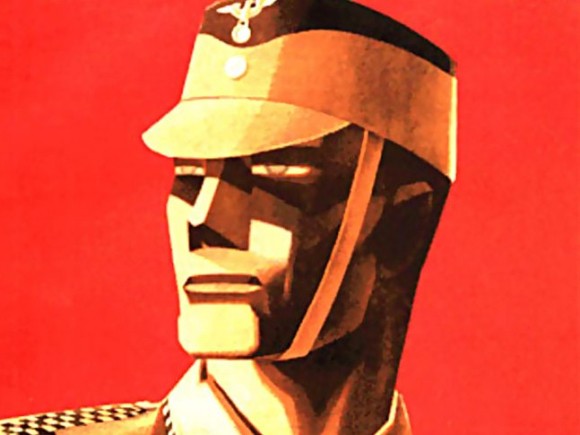
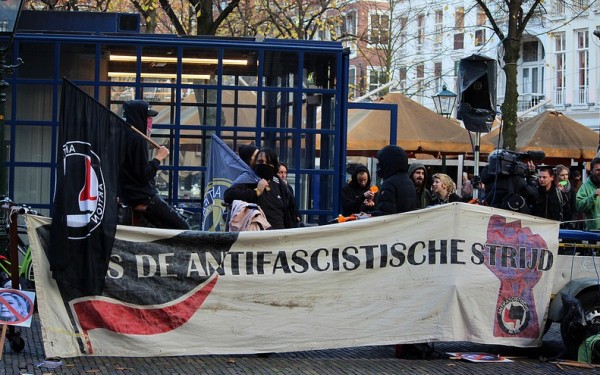
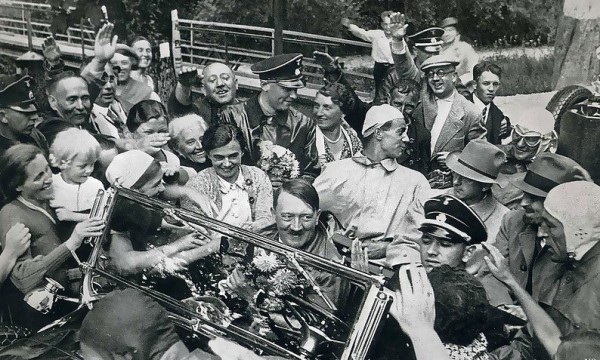
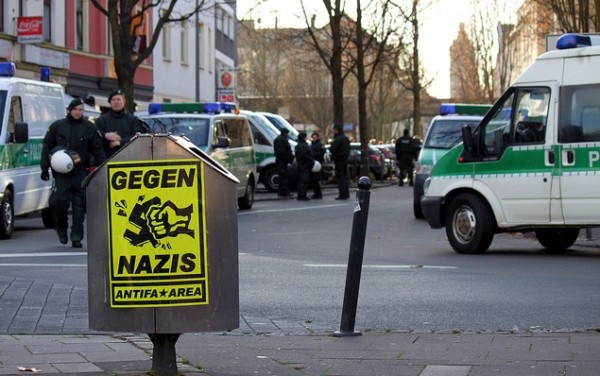
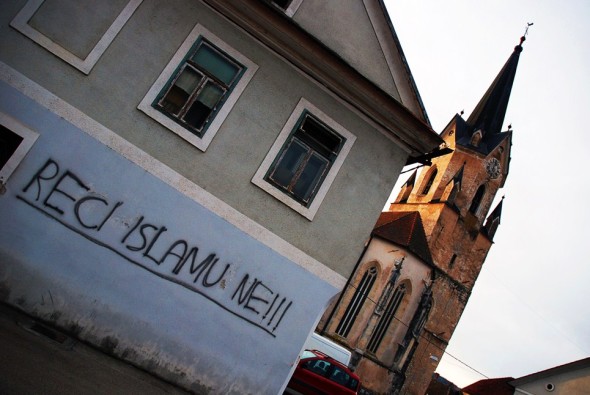
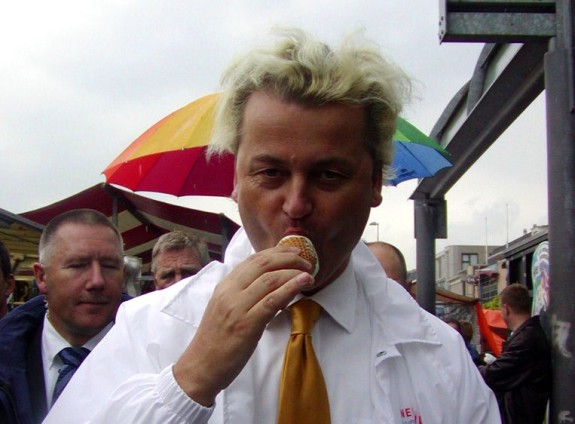
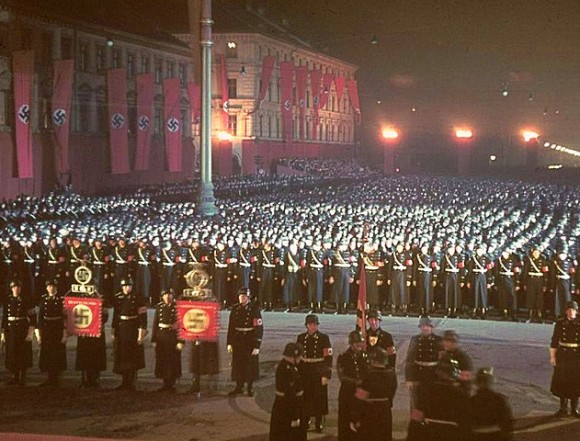
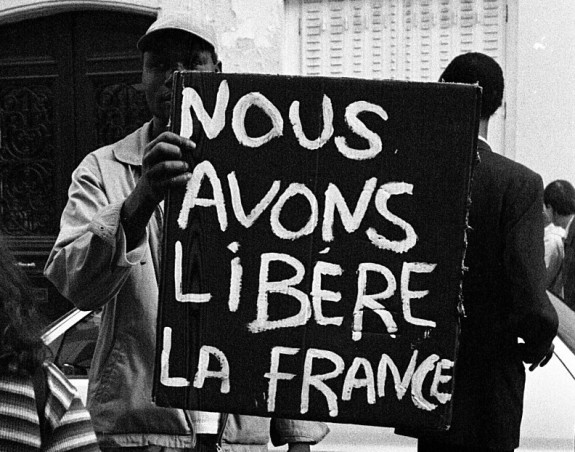
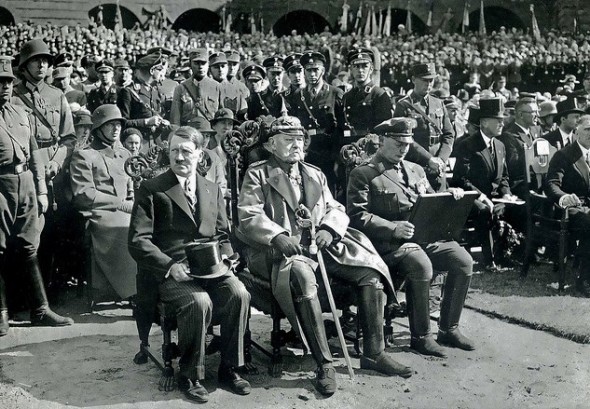
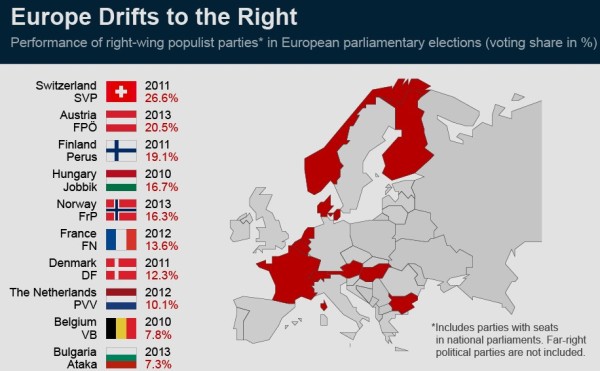
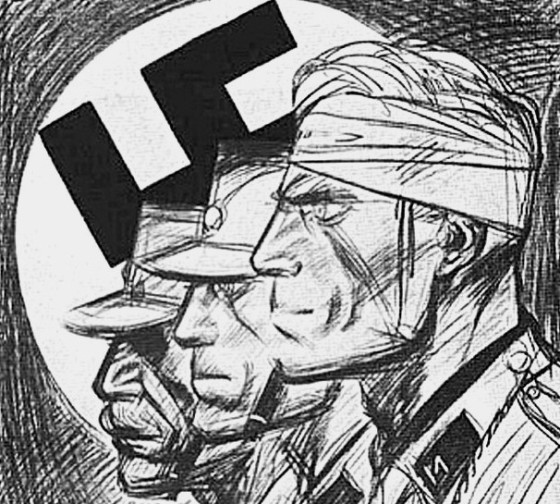
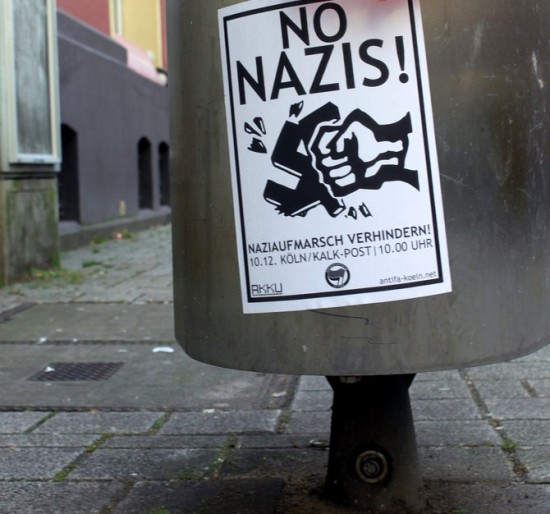











11 Responses to Unification of Europe’s Far Right: Rise of the Fourth Reich?
You must be logged in to post a comment Login